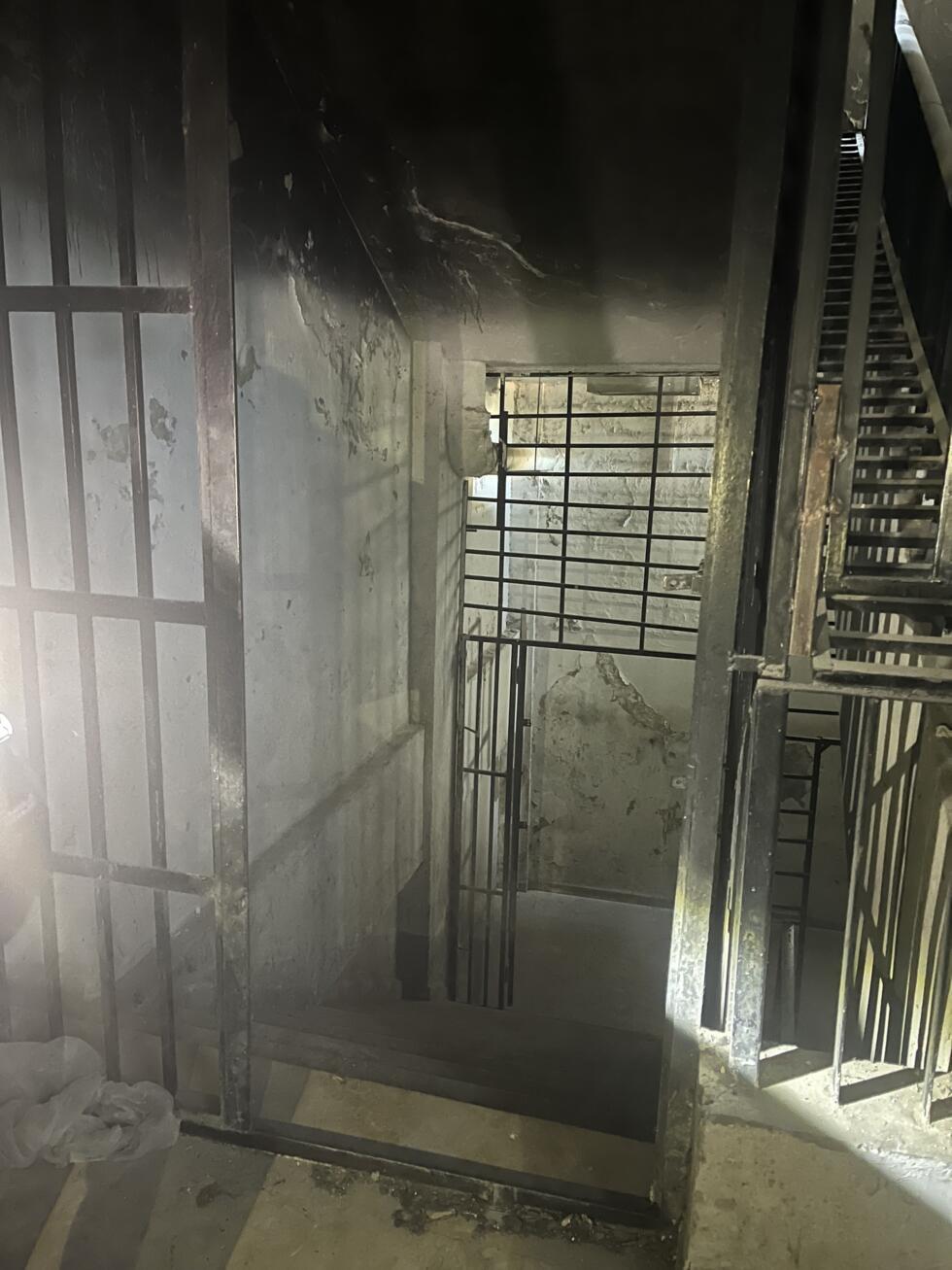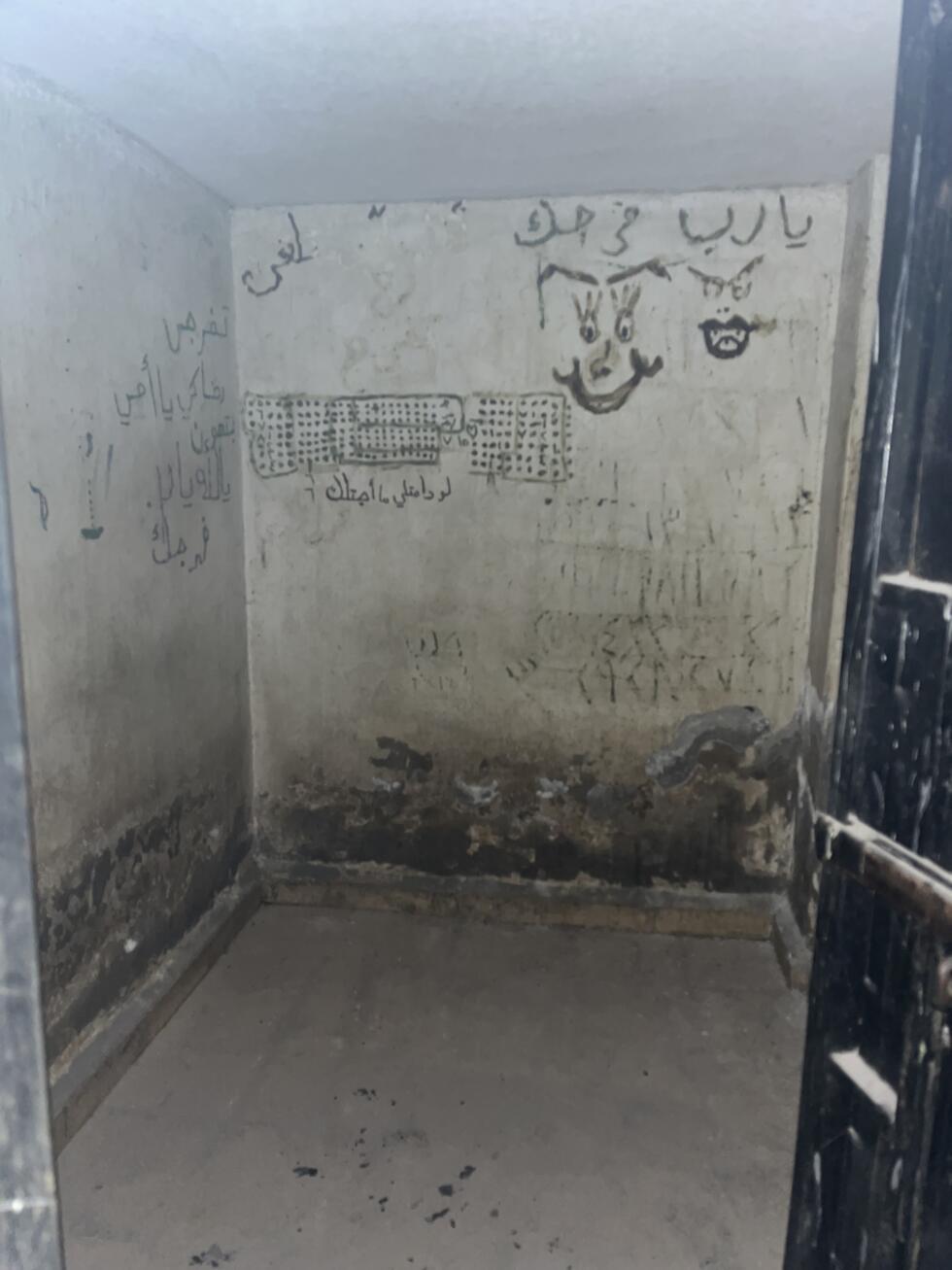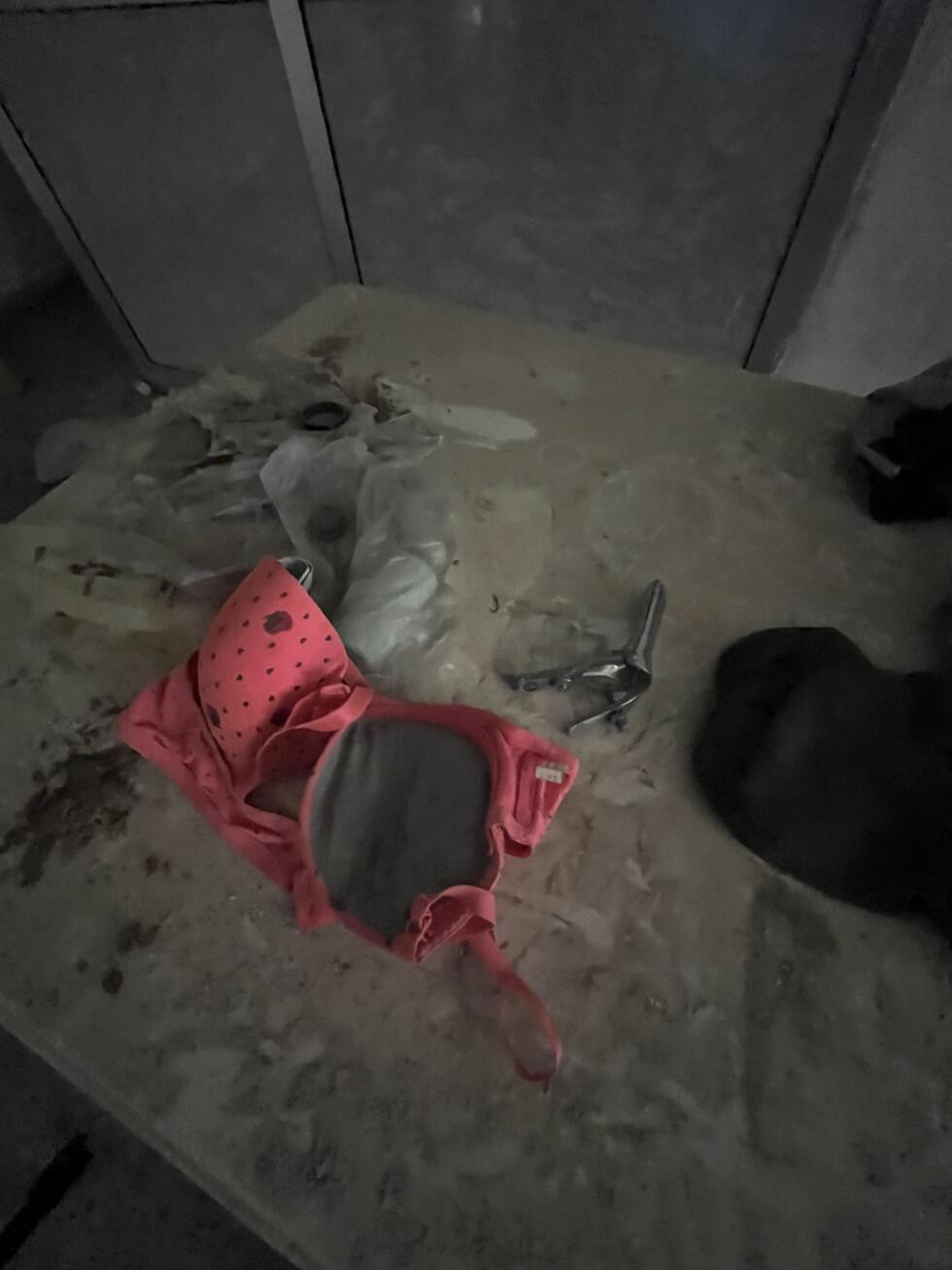The constructing, on the outskirts of Damascus, is hidden behind a excessive surrounding wall. Entry to the dreaded premises requires particular authorisations from Syria’s inside and data ministries. Department 235, also referred to as the Palestine Department (Far Falastin in Arabic) was a army intelligence division created within the Nineteen Seventies to observe Palestinian teams working in Syria. It later turned a serious torture centre the place tons of of 1000’s of Syrians – males, girls, and kids – had been imprisoned and tortured underneath the regimes of Hafez and Bashar al-Assad.
Troopers from the military of Syria’s transitional president Ahmed al-Sharaa now guard this place, which has been empty of prisoners because the fall of the Bashar al-Assad regime on December 8, 2024. Previous the heavy electrical gate, the noise of the busy freeway fades away. Time appears to face nonetheless right here. Actually. On the partitions, slogans glorifying Assad haven’t but been erased: “Al-Assad without end,” “Martyrdom is the trail to victory,” “With our chief Bashar, we proceed on the highway.”
Within the courtyard, junk furnishings is piled up haphazardly. Steel beds, armchairs, desks, and all types of objects, remnants of a bygone period, lie scattered underneath a scorching solar. On the fringe of the courtyard stands a hulking seven-storey constructing.
The escorted jail go to is restricted to the sprawling basements of the constructing. Behind a barricaded door, we descend into the bowels of the Palestine Department – in virtually whole darkness. That is the place the prisoners had been tortured, raped and held in inhumane circumstances. The “126 steps” that former inmate Aida counted are right here. “In my cell, I advised myself that I mustn’t overlook something: the variety of steps within the wing, the variety of steps to the officer’s workplace, the variety of bars on the mattress body,” recounted the previous detainee, who was tortured and raped right here for 18 consecutive days.

A cell phone flashlight barely illuminates the countless staircase. The white partitions have been blackened by moisture and flames. Earlier than fleeing, Assad’s troopers set hearth to every part they may, destroying proof of the regime’s crimes.
On the backside of the steps, a hall catches some daylight from an overhead skylight. That is the troopers’ quarters, the place the dormitories are affected by beds, mattresses, wardrobes, uniforms, boots, and hygiene merchandise left behind. A 2012 diary was spared by the flames. Its pages are blackened with the names of women and men who handed via the department. Empty bottles are scattered right here and there. Arak, whisky, vodka, and different bottles are reminders of the testimonies of former inmates about their jailers’ invariable drunkenness throughout the rapes carried out inside these partitions.
The basement of the ‘Palestine Department’
{{ scope.counterText }}
© {{ scope.credit }}
Partitions that monitor time and inform hellish tales
The primary cells, the prisoner isolation rooms, will not be removed from the troopers’ quarters. They’re tiny rooms, barely 2 sq. metres, with heavy metallic doorways displaying numbers. There are just a few small skylights, barely sufficient to let the daylight in. The white partitions are lined with inscriptions by the prisoners in Arabic: “Oh Lord, relieve us,” “This era will finally go,” “Belief nobody, not even your brother.” There are additionally numbers and drawings etched on the partitions. Some are terrifying: they inform the tales of inmates who thought they might by no means get out. The partitions right here have change into veritable books, expressions of a determined battle to not overlook, to not lose monitor of time, to not lose one’s thoughts and easily go mad on this place.

The stale, damp air is barely stirred by the incessantly whirring air flow system. On the opposite aspect of the troopers’ dormitory, the rooms seem like workplaces and the journey turns into sordid. A type of vestibule results in the collective cells, which had been as soon as overcrowded with prisoners. Squat bogs are lined up alongside the aspect. The guards took the prisoners to the bogs, the place they had been subjected to bullying. “Once we needed to go to the bathroom, we had been crushed on the way in which there,” recalled Houda. “I nonetheless endure from incontinence at the moment.” Based on testimonies, prisoners had been solely allowed to alleviate themselves two or thrice a day. “We might go to the bathroom at 5am and 5pm. You had three minutes, and for those who overstayed by even three seconds, they might open the door,” mentioned Aida.
{{ scope.counterText }}
© {{ scope.credit }}
Dozens of drugs packing containers, together with paediatric medication, lie on the ground of the big room. Garments and underwear are scattered round. A pink cotton bra lies on a dusty desk. A silver object catches the sunshine. It’s a vaginal speculum, a gynaecological instrument that was undoubtedly misused to inflict abuse on the detainees. Many former prisoners talked about the “inhumane” intimate searches and penetration by metallic objects.

Underwear all over the place
It will get darker as we method the ladies’s cells. A small hall separates them on both aspect. Behind metallic, numbered doorways are huge rooms the place prisoners had been crammed collectively. Dozens … 40, 60, 100 … it’s unattainable to know what number of girls had been packed in right here. Many former inmates recall having to sleep standing up or take turns sleeping. The partitions, blackened by mould, are lined with typically illegible markings of dates, names and drawings of desperation.
Small white bowls, in all probability meals bowls, are stacked and held on a wall. “In Palestine, there was nothing to eat,” recounted Aida. “We got bulgur wheat in a plastic field. We needed to eat with our fingers. There have been bugs within the meals. Every little thing was disgusting … The guard would urinate within the water tank and pressure us to drink it.”
{{ scope.counterText }}
© {{ scope.credit }}
The rows of jail cells, so lots of them, characteristic the identical scenes of survival. Laundry nonetheless hangs on a clothesline. Blankets, underwear, youngsters’s garments lie strewn on the ground in cell after cell after cell. Former prisoners have advised FRANCE 24 that they lived virtually bare on this place. Upon arrival on the Palestine Department, they had been stripped of their hijabs and garments and left to stay of their underwear. It was a means of humiliating them. It was additionally a type of psychological torture, as nudity is taboo in Syrian society.
Support Greater and Subscribe to view content
This is premium stuff. Subscribe to read the entire article.














